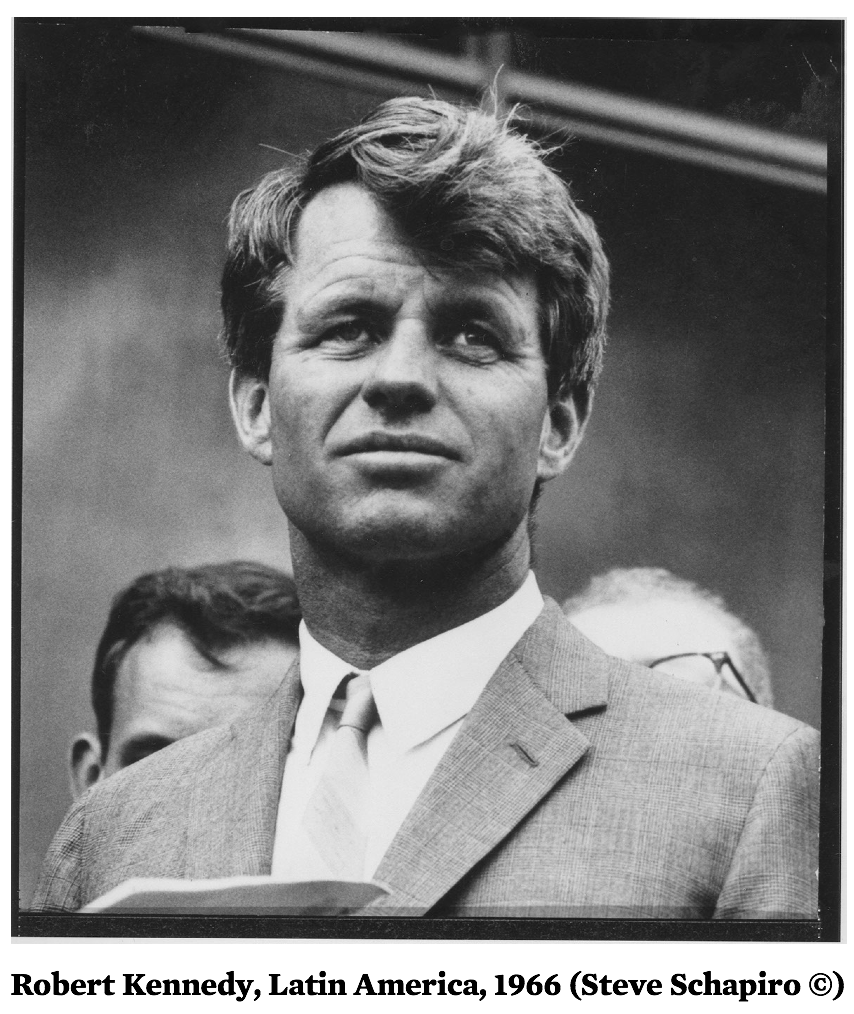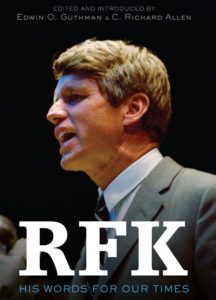EXCERPTED FROM RFK: HIS WORDS FOR OUR TIMES
Today, March 31st, is a national holiday declared by President Obama in 2014 as Cesar Chavez Day. The founder of the United Farm Workers was a close ally of Robert Kennedy’s, a friendship born in 1966. This excerpt from our book describes that first encounter:
Late in 1965, friends in organized labor asked Robert Kennedy to take the subcommittee to the San Joaquin Valley of California, where Cesar Chavez, trained by legendary community organizer Saul Alinsky, was unionizing grape pickers and urging a national boycott of nonunion grapes. Kennedy initially tried to avoid taking on another issue; he was resistant, preoccupied by Vietnam and the problems of the cities. But after more prodding from labor, he reluctantly joined his subcommittee for the second day of hearings in a high school auditorium in Delano, California, in March 1966.
What he saw and heard galvanized him. Chavez remembered the day as stiflingly hot and the auditorium as jam-packed. “There were workers inside and outside and crawling out the windows and in the doors.” Seats had to be cleared for the growers, who were, in Chavez’s understatement, “very hostile.” Kennedy listened to testimony from farm workers and from growers (who argued that the organizers were Communists or their dupes). Chavez later paraphrased Kennedy’s counsel to the growers: “It’s not in my mind that you’re going to win. I would suggest, of course, in terms of this committee, that you sit down and negotiate before the thing gets worse, because the workers are going to win.” Kennedy’s endorsement of their struggle was politically and psychologically important to Chavez’s movement. Union leader Dolores Huerta remembered that “Robert didn’t come to us and tell us what was good for us. He came and asked two questions . . . ‘What do you want?’ and ‘How can I help?’ That’s why we loved him.” He stayed in contact with the movement over the next two years, raising donations for them; working for minimum wage and collective bargaining legislation that would include itinerant workers such as grape pickers; and fighting to have the Immigration and Naturalization Service stop using threats of deportation to break the union. Kennedy had great personal respect for Chavez, a few years his junior, particularly because of Chavez’s shrewd organizing talents and his commitment to nonviolence in the struggle for increased economic and political power for migrant workers.
FOR MORE, PLEASE READ RFK: HIS WORDS FOR OUR TIMES, available at bookstores and https://www.amazon.com/RFK-His-Words-Our-Times/dp/006283410X/

